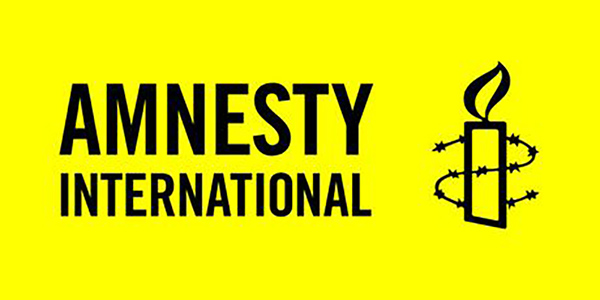The shocking death of George Floyd at the hands of a Minneapolis police officer has once again highlighted that anti-Black racism in policing across the United States is an entrenched, unrelenting human rights crisis that needs concerted action at all levels of government and society.
The number of Black people in the US who have been killed, profiled, harassed or otherwise targeted by law enforcement including police, security guards and by private citizens continues to grow at a staggering rate. Further, the number of Black women, transgender, and gender non-conforming people who die from racist, sexist, and transphobic violence is an alarming cause for concern. Breonna Taylor and Tony McDade are the latest on this often-omitted list.
“The intersections of race, gender, and sexuality play a key role in who is remembered, who is not, and whose deaths spark widespread outrage,” said Daniella Barreto, Digital Activism Coordinator with Amnesty International Canada. “Any Black person murdered is a tragedy that warrants action.”
The utter failure of justice and accountability for past killings has clearly created a climate of full-scale impunity fueled by toxic levels of anti-Black racism such that large numbers of police and private citizens feel free to threaten, attack, shoot and kill Black people without consequence.
Amnesty International joins the call for a firm and decisive response to the killing of George Floyd that will break through that impunity. The news of the arrest of Minneapolis Police Officer Derek Chauvin is an important step. To ensure that this case will be handled with complete impartiality, an Independent Prosecutor should now be appointed.
“Anti-Black racism in policing is by no means limited to the United States. It crosses borders around the world, including here in Canada,” said Alex Neve, Secretary General of Amnesty International Canada’s English branch. “Amnesty International unequivocally supports frontline groups and activists in communities across the country who work courageously and tirelessly to expose that racism and demand justice for the growing number of Black people who have been wrongly arrested, mistreated or killed by police in towns and cities in all parts of Canada. We continue to call on all governments in Canada to address these grave concerns as a top priority, including by enacting absolute bans on police carding and racial profiling and to ensure disaggregated data on arrests, shootings and killings is kept and made publicly available annually through police board reports.”
These incidents are not rare in Canada. Twenty-six-year-old D’Andre Campbell was shot in his home by Peel police officers in April this year. Amnesty International is closely watching developments with respect to the tragic death of Regis Korchinski-Paquet in Toronto on May 27. Ms. Korchinski-Paquet, who is Black and Indigenous, plummeted to her death from the 24th floor of her apartment building after Toronto police officers entered the residence. Her family had reportedly been made to wait in the hallway outside the apartment. Serious concerns have been raised and questions asked, including by her family, about the circumstances surrounding her death. Ontario’s Special Investigations Unit (SIU) – the province’s police watchdog – is investigating the case.
“The SIU investigation will take time. Meanwhile there is an urgent need for more information now, especially given the serious questions raised as to whether police may in any way have played a part in Regis Korchinski-Paquet’s tragic death,” said Neve. “Toronto police must take steps that will build confidence for her family that those concerns are front and centre at this time and will be addressed on the basis of meaningful and independent reviews, assessment or advice in the coming days. Too often concerns about anti-Black racism in policing in Canada have been ignored or have been examined through investigations and reviews that have dragged on interminably. Justice delayed is not justice, it only deepens injustice.”
Amnesty International has also previously highlighted how the Canadian justice system is fraught with racism that disproportionately impacts Black people and communities across the country, including the police practice of carding. Amnesty International maintains its call for a permanent and effective ban on carding, as it’s a form of systemic police discrimination that violates several human rights.
Media contact:
Lucy Scholey, Media Relations, Amnesty International Canada (English branch), lscholey@amnesty.ca






















